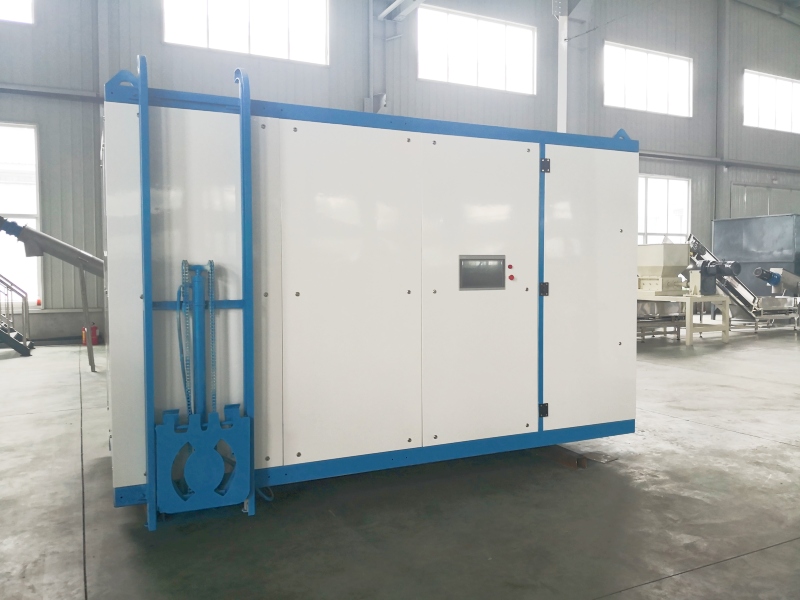
Introduction:
The Kitchen Rubbish Dewatering Machine is an innovative appliance designed to address the challenges associated with kitchen waste management. As societies worldwide grapple with increasing waste generation, particularly in urban areas, the need for efficient and sustainable solutions has become paramount. This article delves into the primary functions of the Kitchen Rubbish Dewatering Machine, highlighting its role in promoting eco-friendly practices and reducing the environmental impact of kitchen waste.
Waste Volume Reduction:
One of the key functions of the Kitchen Rubbish Dewatering Machine is to significantly reduce the volume of kitchen waste. By employing advanced dewatering technology, this appliance extracts excess liquid from food scraps, vegetable peelings, and other organic waste, thereby minimizing the overall volume of the discarded materials. This reduction not only optimizes waste storage but also facilitates easier transportation and disposal.
Odor Control:
Kitchen waste, especially organic matter, is notorious for emitting unpleasant odors as it decomposes. The dewatering process in this machine helps in controlling and minimizing these odors by removing the moisture content. This feature is particularly beneficial in households and commercial kitchens, where effective odor control is essential for maintaining a clean and pleasant environment.
Enhanced Composting Efficiency:
The dewatered kitchen waste from this machine is well-suited for composting. By reducing moisture content, the composting process becomes more efficient, as excess water can hinder the breakdown of organic materials. The resulting compost is of higher quality, providing a nutrient-rich soil amendment for gardening and agriculture.
Resource Recovery:
The dewatering process not only reduces waste volume but also enables better recovery of resources. The extracted liquid, often rich in nutrients, can be repurposed as a liquid fertilizer for plants. This closed-loop system contributes to a more sustainable and circular approach to waste management.
Energy Efficiency:
Some advanced Kitchen Rubbish Dewatering Machines are designed with energy-efficient features, minimizing their environmental footprint. These machines may incorporate intelligent sensors, low-power consumption components, and automation to optimize energy use during the dewatering process.
User-Friendly Design:
To encourage widespread adoption, these machines are often designed with user-friendly interfaces. Intuitive controls, easy maintenance, and safety features make them accessible to a broad range of users, from households to commercial kitchens.
Conclusion:
The Kitchen Rubbish Dewatering Machine plays a crucial role in revolutionizing kitchen waste management. By effectively reducing waste volume, controlling odors, enhancing composting efficiency, promoting resource recovery, and incorporating energy-efficient design, these machines contribute to more sustainable and eco-friendly practices. As technology continues to advance, these appliances are likely to become integral components of modern waste management systems, fostering a cleaner and greener future.




If your company wants to establish a business relationship with us, please briefly describe the cooperation intention and send an email to:chuantaiscrewpress@gmail.com























































































![[list:title]](/static/upload/image/20240528/1716877114510915.jpg)